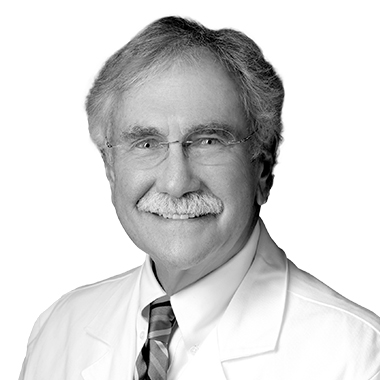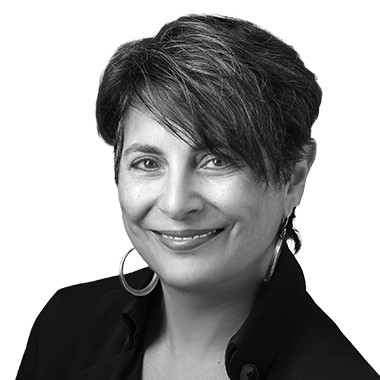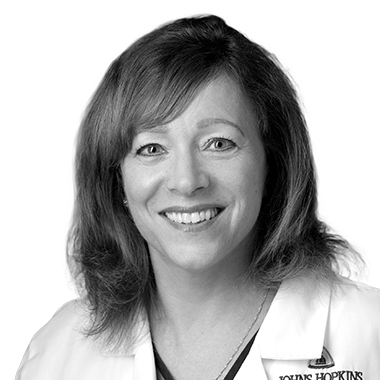'I Need to Build a Hospital'
Though his medical training and career have cast him far from his birthplace, Kofi Boahene has always felt an imperative to improve medical care back home.

The chronic shortage of trained medical professionals in Ghana inspired Boahene's ambitious effort to create a teaching hospital in Accra.
Photography by Gail Kapsambelis
Again, Kofi Boahene was called back to Ghana.
It was 2011, and a hospital in Kumasi needed help with a complex surgery: A young boy with lymphoma, treated with radiation, had lost much of his lower face.
“There wasn’t much more they could do for him, but I had the expertise to fix it,” recalls Boahene, a facial reconstructive surgeon at Johns Hopkins.
Boahene blocked off time from work and booked a ticket for the 10-hour flight to Ghana. It wasn’t unusual for him to travel to his home country, where his parents still lived, for surgical mission trips. Though his medical training and career had cast him far from his birthplace — to Russia, the American South and Midwest, and ultimately to Baltimore — Boahene always felt an imperative to bring his skills back home. A West African proverb became a kind of life motto: “However far the stream goes, it never forgets its source.”
This time, though, Boahene couldn’t help. When he arrived in Kusami, the hospital wasn’t equipped to support him for the surgery. Staffing was too short. He had no choice but to abandon the procedure and the young boy who needed it and fly back to Baltimore.
Boahene was too familiar with this crater of the Ghanaian health care system: a chronic shortage of trained medical professionals. Some surgeries he performed on his mission trips, like fixing cleft palates, were simple and routine in the U.S. but rarefied into lifesaving rescues in Ghana.
After this unrealized surgery, though, he felt a new type of frustration — one with potential to energize him. What if these surgeries didn’t have to be restricted to improvisational spaces? What if more local surgeons were trained and available to perform them?
“I felt, I can’t move the needle, working with these limits,” he says. “I need to create my own space. I need to build a hospital.”

An Improbable Journey
Several points of Boahene’s youth in Ghana had steered him toward becoming a doctor. His own father predicted the outcome for his son when he was only 5.
When his family was gifted a set of encyclopedias, Boahene became strangely fixated on the entry for the “Mayo Clinic” in Minnesota, declaring to friends that he would work there one day.
The firstborn of eight, Boahene grew up in an upper-middle-class family that highly valued education, in the capital city of Accra. His father was a successful chemist and pastor. But the family’s fortunes changed in 1979, when a military coup brought upheaval to Ghana. It took years for his parents to rebuild any financial stability, but they managed to send Boahene to boarding school in Kumasi. There, a pivotal experience — during which he and his friends helped save the life of a classmate involved in a motorbike accident — reaffirmed his desire to become a doctor.
Like many Ghanaians who pursue medical education, Boahene set his sights abroad. He acknowledges he is part of the pattern of “brain drain” that afflicts the country’s health care system, with those in medicine heading elsewhere to receive training — then never returning home. In Ghana, it’s estimated that 1.642 medical doctors are available per every 10,000 people, according to World Health Organization figures in 2020; in the U.S., that ratio is 35 per 10,000 and still considered a shortage.
When Boahene applied to medical schools in the late 1980s, he won a scholarship to a school in Germany. But August arrived, and his paperwork never did. He learned that another student from Ghana had milked political connections to steal his spot.
Short on options, Boahene ended up in the unlikely scenario of attending veterinary school in the Soviet Union — a year after the collapse of the Berlin Wall — in what he hoped could be an indirect route to medical school. After two years, Boahene took a leap of faith to move to the U.S. He stayed with a family his father had met through missionary work, who lived in Harrison, Arkansas — another improbable location for a young Ghanian. He remembers seeing only one other Black person during his time there.
Needing undergraduate credits, Boahene enrolled in the University of Central Arkansas, where he was able to tutor students in Russian to help pay for tuition. He won admission to the medical school at Meharry Medical College, a historically Black college in Nashville, with a professor from Arkansas co-signing the tuition loans.
At Meharry, Boahene found himself drawn to otolaryngology, treating vital functions of the head and neck area. In his second year, he was invited to a summer program in the Midwest, which he at first offhandedly declined in order to study for the U.S. medical licensing exam. A couple of weeks later, it struck him: That was Mayo Clinic! From the encyclopedia. He immediately picked up the phone and learned there was one spot left, and it was his.
Boahene later returned to Mayo Clinic for both his surgical clerkship and residency program in otolaryngology, honing a subspecialty in facial reconstructive surgery. He received an offer from Johns Hopkins in December 2004 and moved to Baltimore with his wife, Adajoa, a dentist and fellow Ghanaian who was raised in New Zealand. Today, the couple lives in Forest Hills, Maryland, with their four children.
At Johns Hopkins, where Boahene directs the Division of Facial Plastic and Reconstructive Surgery, his colleagues describe him as a creative, nimble surgeon who comes up with innovative solutions to tricky problems.
 Charles Cummings
Charles Cummings“He’s someone you really can’t ignore because of his unique talent and unique character traits,” says Charles Cummings, a previous director of the Johns Hopkins otolaryngology department. “He possesses, in my opinion, an exquisite talent for surgery, and he has expanded surgical parameters more than most anyone I know.”
Boahene is especially known for his skill in reaching tumors in hard-to-access areas of the skull. In one operation that became a popular case study, he used miniature robotic tools to access a tumor via a patient’s eye socket, a far less invasive approach than the alternative of cracking the skull.
In his Baltimore office, Boahene keeps a model skull he’s always examining and poking. “When I’m doing a complex case, I’ll pull up the skull,” he says. “Sometimes you notice new things you’ve never paid attention to before.”
“He’s someone you really can’t ignore because of his unique talent and unique character traits.”
Charles Cummings
Feet to the Fire
Boahene has organized dozens of surgical mission trips during his time at Johns Hopkins — not only to Ghana, but other African nations, including Nigeria, Cameroon, Liberia and Rwanda; as well as Peru, Mexico and Bangladesh. Carol Sallese Maragos, a Johns Hopkins nurse practitioner who has traveled on several of these missions, says Boahene is “the real deal,” with a goal to “provide his patients a better quality of life — and he will find a way to do that, whatever it takes.”
“The story is the same in all of these places,” Boahene says of the trips. “There’s a lot of need but very little infrastructure and very few expert surgeons. There are good surgeons. But anytime you need something more than basics, you’ll have trouble finding the expertise. They went outside of their countries to train, they establish their careers and families, and they never come back.”
This “brain drain” problem was top of mind for Boahene when he formed his nonprofit, the Foundation for Special Surgery, in 2014. In addition to funding mission trips, the foundation has always focused on Boahene’s greater ambition: building a brick-and-mortar hospital in Accra to provide specialized surgeries not readily available in the region, along with training programs to create new generations of skilled surgeons in West Africa.
Boahene’s team of partners includes three former colleagues from Mayo Clinic — Anthony Brissett, Holger Gassner and Joseph O’Connell — as well as two of his own brothers, Kofi Owusu and James Owusu.
 Gail Kapsambelis
Gail Kapsambelis“He’s been talking about this hospital since I first met him,” says Gail Kapsambelis, a videographer for Johns Hopkins Medicine, who first connected with Boahene in 2009 and has filmed pro-bono videos for his foundation.
Boahene says once he started verbalizing the idea to others, he felt increasingly obligated to make it happen. “I’ve told so many people that I’ve wanted to do this that I always have people asking me about it,” he says, recalling what a mentor once told him: “If you want to accomplish something, tell people what you're going to do. They’ll keep your feet to the fire so you keep moving.”
Pearl

In his 2016 autobiography, However Far the Stream Flows, Kofi Boahene provides a moving account of his improbably journey from Ghana to Johns Hopkins
Moments of Doubt
Building a new surgical hospital from the ground up has been a painstaking but galvanizing ordeal over the past decade-plus, with Boahene orchestrating all the nitty-gritty. The flight between Dulles International Airport in Virginia and Kotoka International Airport in Accra has become mundane to him.
“I’ve found electrical equipment made in Turkey, and I’ve found floor tiles in Spain,” he says. “I’ve learned so much about hospitals that when I’m working in them now, I don’t see them the same way anymore.”
The team has gathered funding through annual Washington, D.C., galas and the Rotary Club in Germany, as well as from their own pockets and those of their families. Generous patients have also pitched in.
 Carol Sallese Maragos
Carol Sallese Maragos“He has lots of people supporting him, but he has been working on this almost 24/7 for years, making sure all the supplies are ordered,” Maragos says. “Building this hospital is something he’s so passionate about and has been involved in 100%.”
Between oversight of the hospital and his work at Johns Hopkins, along with his roles as husband and father, Boahene hasn’t had much free time. “I have had moments that I’ve doubted myself,” Boahene says. “I’ve thought to myself, why did I do this?”
The hospital project sputtered to a crawl with the supply chain tangles from the COVID-19 pandemic and the war in Ukraine, pushing back the start date by years. Construction finally broke ground in spring 2021.
Boahene intentionally chose a location in Accra alongside FOCOS, an orthopaedic hospital founded in 2012 by orthopaedic surgeon Oheneba Boachie-Adjei, who returned to Ghana after training and practicing in New York. “He has a similar vision to my own,” Boahene says, and the idea is for the two hospitals — located side by side — to share resources, including staff and an MRI machine.

Providing World-Class Care in Accra
On March 1, the West Africa Institute for Special Surgery formally opened its doors in Accra. The new surgical hospital spans 87,000 square feet over two floors, with 46 private rooms for patients, an ICU, four operating rooms, and Ghana’s first sleep and pulmonary unit. “We are pushing hard to get a surgical robot, which would be the first in the region,” Boahene says.
Dozens of people from his life showed up to the ribbon-cutting, including his parents, now in their 90s. (His mother couldn’t resist a gentle gibe, “Son, this hospital has made you go gray.”) Representatives from Ghana’s Ministry of Health, USAID and various medical institutions local and abroad also came for tours.
Boahene describes the day as “over the top.”
“Everyone was just very emotional when seeing the hospital for the first time,” says Kapsambelis, who was there to film the event. “I get choked up when I think about his journey.”
The West Africa Institute for Special Surgery (WAISS) offers a full range of otolaryngology services, including minimally invasive skull-base surgeries, facial reconstructive procedures and craniofacial surgeries, as well as urology services, neurosurgery for minor tumors, sleep medicine, and interventional spine and pain management.
Boahene and his team recently performed what’s believed to be the first laparoscopic kidney resection for cancer ever completed in Accra. They also treated a patient with facial paralysis who traveled from Nigeria to receive a specialized facial reanimation surgery.
“I’ve found electrical equipment made in Turkey, and I’ve found floor tiles in Spain. I’ve learned so much about hospitals that when I’m working in them now, I don’t see them the same way anymore.”
Kofi Boahene

At its core, WAISS is a teaching hospital. Boahene and his team want to bring in African men and women for fellowships to acquire specialized skills in surgery, which they can use to make a living providing world-class care in their own region. The team recently signed on their first apprentice, a female physician from Ghana.
The instructional expertise comes from Boahene’s past and present colleagues, who he’s enlisted for rotations and conferences in Accra and remote lectures. Boahene’s work in Ghana is already known throughout his department at Johns Hopkins, and he wants to build a formal surgery rotation for Johns Hopkins residents at WAISS.
He hopes one day for the hospital in Accra and its mission to be sustainable without his close eye, in both funding and operations. Ghana is always home, but Boahene is not planning to move back anytime he can imagine. He remains perpetually tugged between his two worlds, back and forth between Baltimore and Accra.
“The success of this place,” he says of his hospital, “should not revolve around me.”
